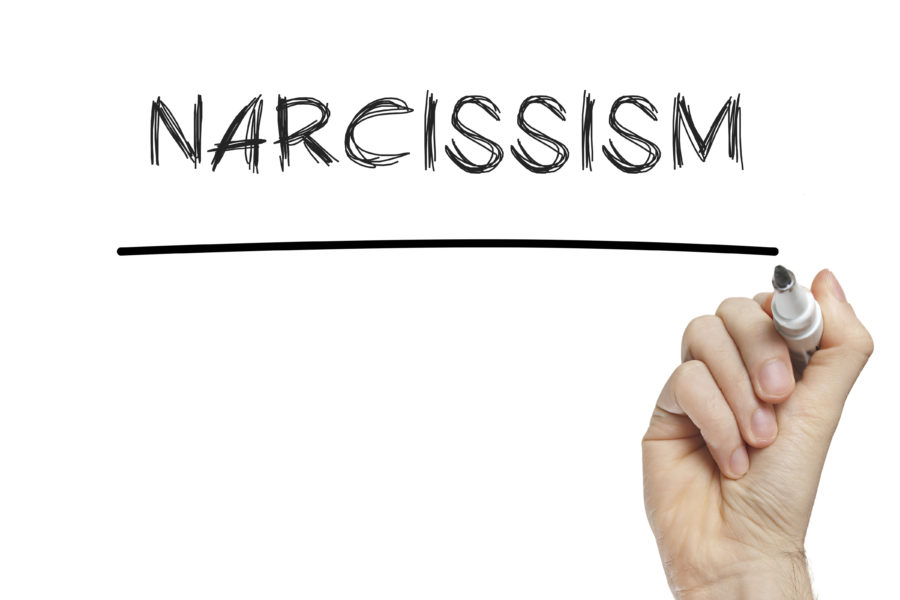The Sad Connection Between Childhood Emotional Neglect and Narcissism

Believe it or not, there is a sad connection between Childhood Emotional Neglect (CEN) and narcissism. If you know very much about either, you probably find that difficult to believe.
After all, people who grow up with Childhood Emotional Neglect have a strong tendency to view themselves and their own needs as unimportant and secondary to others whereas, in contrast, those with narcissism are known for putting themselves and their own needs first.
How, then, could these two opposite personality styles be related? Actually, in quite a few very important ways.
But before we talk about how these two are linked, let’s first define them both.
Childhood Emotional Neglect
Childhood Emotional Neglect happens when your parents fail to respond enough to your emotions and emotional needs as they raise you. This sends you, a child, a subtle message, “Your feelings don’t matter.” Children who receive this message automatically push their feelings down, basically walling them off, so that they will not be troubled by them.
This may allow you to cope in your childhood home, but in adulthood, having your feelings blocked causes all kinds of problems in your life. Having your feelings walled off is basically a recipe for feeling disconnected and unfulfilled in your adult life. It makes emotions puzzling, keeps your relationships lacking, and makes you feel less important, less valuable, and less valid than other people.
Narcissistic Personality
Narcissism exists on a continuum, all the way from having some narcissistic traits all the way to the other end, the more extreme narcissistic personality disorder which is an official clinical diagnosis.
A person with narcissistic traits is likely seen as self-centered and somewhat grandiose. For example, they may tout their own accomplishments often, be willing to step on others to get to the top, and thrive in the limelight.
A person with narcissistic personality disorder takes all of those a few steps further. But some other likely qualities of the personality disorder include a desperate need to be admired, inability to feel empathy for others, arrogance, plus a willingness to exploit others to achieve their own needs for power and control.
5 Sad Connections Between Childhood Emotional Neglect and Narcissism
- One of the causes of CEN is being raised by a narcissistic parent. Narcissistic parents are a major source of Childhood Emotional Neglect. Narcissistic parents are unable to see the true nature of their children or respond to them emotionally. They are taken up trying to get their own needs met, and are not capable of giving emotionally to anyone, and that includes their child. So children of narcissistic parents often have their emotional needs ignored or discouraged, the very root cause of CEN.
- Most narcissists grew up with an extreme variety of Emotional Neglect. The extreme type of CEN that contributes to narcissism happens when your parents not only ignore your emotions, they actively squelch your feelings and your true self. Narcissism may be partly determined by genetics, but to become a narcissist, you generally must grow up with a complex mix of being emotionally squelched (CEN) in some ways, and overly indulged or excessively praised in some kind of superficial or inaccurate way. CEN is at the core of every narcissist.
- People with pure Childhood Emotional Neglect are drawn to narcissists and vice-versa. When you have CEN, you tend to take up little space. Deep down you feel unimportant and invalid, so you don’t ask for much, and you don’t allow yourself to want or need much. On the other hand, those with narcissism are the opposite. Narcissists put their own feelings and needs first, and feel most comfortable when taking up lots of space. This predisposes people with CEN and narcissists to feel comfortable with each other. They often fall in love with each other, but it seldom works out well.
- Many Emotionally Neglected people have a narcissistic sibling. This is because when the parents are emotionally neglectful, the various levels of sensitivity of the children combine with the differing ways the emotional neglect comes across to each child. One may grow up with the struggles of pure CEN and another sibling may end up with narcissism.
- The hidden inner cores of narcissistic people and those with Childhood Emotional Neglect are very much the same. Since CEN is a contributing part of the development of narcissism, this is not surprising. The shared inner core of these two very different styles is a shared inner feeling of being empty, alone, and insignificant. This is how adults end up feeling when they grow up with the most deeply personal, biological expression of who they are (their feelings) squelched or ignored.
Yes, There is a Sad Connection Between Childhood Emotional Neglect and Narcissism
If you were to meet a CEN person and a narcissistic person on the same day, you would see how truly opposite they are. Yet these two disorders, though so very different, in a strange and paradoxical way, cause and perpetuate each other.
Both narcissism and Childhood Emotional Neglect could be wiped off the planet if all of the parents in the world did one crucial thing: noticed, validated, and responded to their children’s emotional needs.
Then the sad connection between CEN and Narcissism would not matter at all. Because every child would know, deep down, and without a doubt, that he matters.
To learn more about Childhood Emotional Neglect, see my first book Running on Empty.
